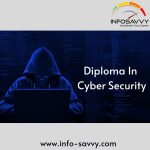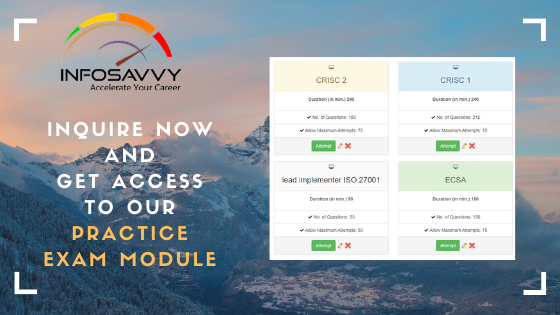Digital technologies are changing the face of business. As organizations rapidly embracing digital technologies such as cloud, mobile, big data and IOT, the context of digital forensics is more relevant than before. The growing number of cyber crimes has changed the role of forensics from DNA to Digital.
According to the market research report published by Industry Arc, by 2020, the digital forensics market will reach 4.8 billion USD. Industry Arc also predicts that the maximum use of digital forensics is from the federal sector and this will grow from $1,097.2 million in 2015 to $2,060.5 million by 2020. The major drivers for this are increasing threats from cyber crime and terrorist attacks. Foot Partners, which tracks information technology (IT) jobs across all skill levels, projects the global demand for cyber security talent to rise to six million by 2019, with an expected shortfall of 1.5 million professionals.
Over the last many years, EC-Council?s CHFI certification has gained massive traction and recognition among st Fortune 500 enterprises globally. It has immensely benefited professionals from law enforcement, criminal investigation, defense, and security field. CHFI v9, the latest version of the program has been designed for professionals handling digital evidence while investigating cyber crimes. It is developed by an experienced panel of subject matter experts and industry specialists, and also has set global standards for computer forensics best practices. In addition, it also aims at elevating the knowledge, understanding, and skill levels of in cyber security and forensics practitioners.
Computer Hacking Forensic Investigator | CHFI Montana
₹35,000.00
CHFI v9 covers detailed methodological approach to computer forensic and evidence analysis. It provides the necessary skillets for identification of intruder?s footprints and gathering necessary evidence for its prosecution. All major tools and theories used by cyber forensic industry are covered in the curriculum. The certification can fortify the applied knowledge level of law enforcement personnel, system administrators, security officers, defense and military personnel, legal professionals, bankers, computer and network security professionals, and anyone who is concerned about the integrity of the network and digital investigations.
CHFI v9 covers detailed methodological approach to computer forensic and evidence analysis. It provides the necessary skillset for identification of intruder?s footprints and gathering necessary evidence for its prosecution. All major tools and theories used by cyber forensic industry are covered in the curriculum. The certification can fortify the applied knowledge level of law enforcement personnel, system administrators, security officers, defense and military personnel, legal professionals, bankers, computer and network security professionals, and anyone who is concerned about the integrity of the network and digital investigations.
Module 01: Computer Forensics in Today?s World
Module 02: Computer Forensics Investigation Process
Module 03: Understanding Hard Disks and File Systems
Module 04: Data Acquisition and Duplication
Module 05: Defeating Anti-forensics Techniques
Module 06: Operating System Forensics (Windows, Mac, Linux)
Module 07: Network Forensics
Module 08: Investigating Web Attacks
Module 09: Database Forensics
Module 10: Cloud Forensics
Module 11: Malware Forensics
Module 12: Investigating Email Crimes
Module 13: Mobile Phone Forensics
Module 14: Forensics Report Writing and Presentation
- CHFI provides necessary skills to perform effective digital forensic investigation
- It is a comprehensive course covering major forensic investigation scenarios that enables students to acquire necessary hands-on experience on various forensic investigation techniques and standard forensic tools necessary to successfully carryout computer forensic investigation leading to prosecution of perpetrators
- CHFI presents a methodological approach to computer forensic including searching and seizing, chain-of-custody, acquisition, preservation, analysis and reporting of digital evidence
? Anyone interested in cyber forensics/investigations
– Attorneys, legal consultants, and lawyers
– Law enforcement officers
– Police officers
– Federal/ government agents
– Defense and military
– Detectives/ investigators
– Incident response team members
– Information security managers
– Network defenders
– IT professionals, IT directors/ managers
– System/network engineers
– Security analyst/ architect/ auditors/ consultants
EXAM DETAILS
Number of Questions: 150
– Passing Score: Please refer https://cert.eccouncil.org/faq.html
– Test Duration: 4 hours
– Test Format: MCQ
– Test Delivery: ECC exam portal
Computer Hacking Forensic Investigator
EC-Council is one of the few organizations that specialize in information security (IS) to achieve ANSI 17024 accreditation for its Computer Hacking Forensic Investigator certification
– The CHFI v9 program has been redesigned and updated after thorough investigation including current market requirements, job tasks analysis, and recent industry focus on forensic skills
– It is designed and developed by experienced subject matter experts and digital forensics practitioners
– CHFI is a complete vendor neutral course covering all major forensics investigations technologies and solutions
– CHFI has detailed labs for hands-on learning experience. On an average, approximately 40% of training time is dedicated to labs
– It covers all the relevant knowledge-bases and skills to meets with regulatory compliance standards such as ISO 27001, PCI DSS, SOX, HIPPA, etc.
– The student kit contains large number of white papers for additional reading
– The program presents a repeatable forensics investigation methodology required from a versatile digital forensic professional which increases employ ability
– The student kit contains several forensics investigation templates for evidence collection, chain-of custody, final investigation reports, etc.
– The program comes with cloud-based virtual labs enabling students to practice various investigation techniques in a real-time and simulated environment
Course Outline
CHFI v9 covers detailed methodological approach to computer forensic and evidence analysis. It provides the necessary skillets for identification of intruder?s footprints and gathering necessary evidence for its prosecution. All major tools and theories used by cyber forensic industry are covered in the curriculum. The certification can fortify the applied knowledge level of law enforcement personnel, system administrators, security officers, defense and military personnel, legal professionals, bankers, computer and network security professionals, and anyone who is concerned about the integrity of the network and digital investigations.
Module 01: Computer Forensics in Today?s World
Module 02: Computer Forensics Investigation Process
Module 03: Understanding Hard Disks and File Systems
Module 04: Data Acquisition and Duplication
Module 05: Defeating Anti-forensics Techniques
Module 06: Operating System Forensics (Windows, Mac, Linux)
Module 07: Network Forensics
Module 08: Investigating Web Attacks
Module 09: Database Forensics
Module 10: Cloud Forensics
Module 11: Malware Forensics
Module 12: Investigating Email Crimes
Module 13: Mobile Phone Forensics
Module 14: Forensics Report Writing and Presentation
You must be logged in to post a review.








Reviews
There are no reviews yet.